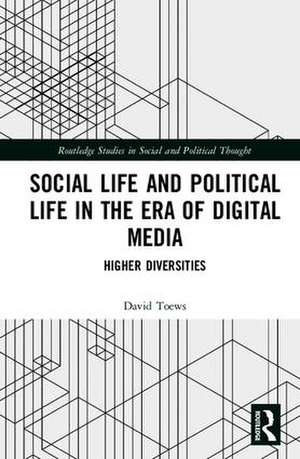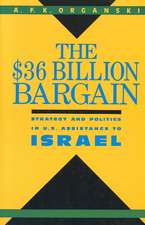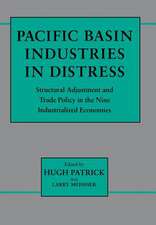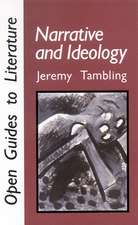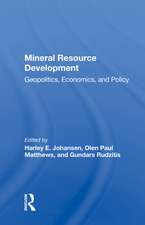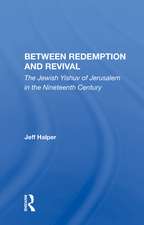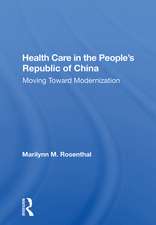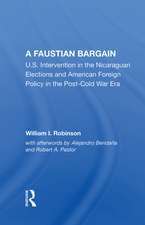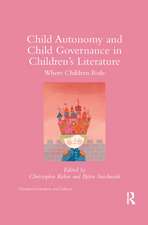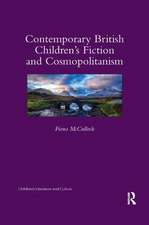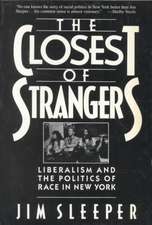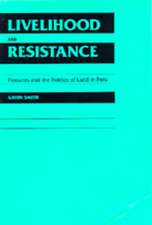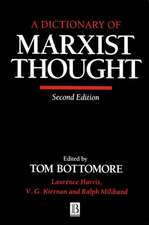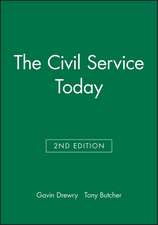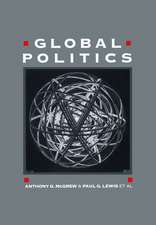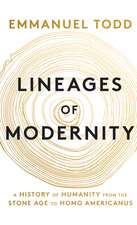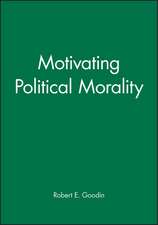Social Life and Political Life in the Era of Digital Media: Higher Diversities: Routledge Studies in Social and Political Thought
Autor David Toewsen Limba Engleză Hardback – 23 feb 2018
Engaging with the work of Deleuze, Tarde, Simmel, Lazzarato, Latour, Harman, Heidegger, Arendt, Archer, Wellman, Bergson and others, Social Life and Political Life in the Era of Digital Media advances a new understanding of modernity offered by social media, re-establishing the autonomy of social life over and against political life and re-articulating the relationship between the social and political. As such, it will appeal to scholars of social and political theory and cultural and media studies.
| Toate formatele și edițiile | Preț | Express |
|---|---|---|
| Paperback (1) | 389.38 lei 43-57 zile | |
| Taylor & Francis – 12 dec 2019 | 389.38 lei 43-57 zile | |
| Hardback (1) | 819.09 lei 43-57 zile | |
| Taylor & Francis – 23 feb 2018 | 819.09 lei 43-57 zile |
Din seria Routledge Studies in Social and Political Thought
-
 Preț: 152.42 lei
Preț: 152.42 lei -
 Preț: 296.64 lei
Preț: 296.64 lei -
 Preț: 311.70 lei
Preț: 311.70 lei -
 Preț: 310.96 lei
Preț: 310.96 lei -
 Preț: 340.32 lei
Preț: 340.32 lei -
 Preț: 310.41 lei
Preț: 310.41 lei -
 Preț: 303.87 lei
Preț: 303.87 lei -
 Preț: 319.08 lei
Preț: 319.08 lei -
 Preț: 333.32 lei
Preț: 333.32 lei -
 Preț: 309.82 lei
Preț: 309.82 lei -
 Preț: 287.67 lei
Preț: 287.67 lei -
 Preț: 324.20 lei
Preț: 324.20 lei -
 Preț: 380.89 lei
Preț: 380.89 lei -
 Preț: 221.84 lei
Preț: 221.84 lei - 8%
 Preț: 374.75 lei
Preț: 374.75 lei -
 Preț: 311.41 lei
Preț: 311.41 lei -
 Preț: 319.01 lei
Preț: 319.01 lei -
 Preț: 216.44 lei
Preț: 216.44 lei -
 Preț: 340.26 lei
Preț: 340.26 lei -
 Preț: 279.47 lei
Preț: 279.47 lei -
 Preț: 347.24 lei
Preț: 347.24 lei -
 Preț: 387.02 lei
Preț: 387.02 lei - 18%
 Preț: 1110.47 lei
Preț: 1110.47 lei - 18%
 Preț: 1055.51 lei
Preț: 1055.51 lei - 18%
 Preț: 1058.43 lei
Preț: 1058.43 lei - 18%
 Preț: 1005.73 lei
Preț: 1005.73 lei -
 Preț: 409.73 lei
Preț: 409.73 lei - 18%
 Preț: 1061.81 lei
Preț: 1061.81 lei - 18%
 Preț: 1061.22 lei
Preț: 1061.22 lei - 25%
 Preț: 544.67 lei
Preț: 544.67 lei - 18%
 Preț: 1215.71 lei
Preț: 1215.71 lei - 18%
 Preț: 998.71 lei
Preț: 998.71 lei - 18%
 Preț: 1109.99 lei
Preț: 1109.99 lei -
 Preț: 488.71 lei
Preț: 488.71 lei - 30%
 Preț: 847.73 lei
Preț: 847.73 lei -
 Preț: 416.12 lei
Preț: 416.12 lei - 18%
 Preț: 1054.75 lei
Preț: 1054.75 lei - 28%
 Preț: 769.72 lei
Preț: 769.72 lei - 18%
 Preț: 1059.84 lei
Preț: 1059.84 lei -
 Preț: 489.99 lei
Preț: 489.99 lei - 18%
 Preț: 1062.31 lei
Preț: 1062.31 lei - 18%
 Preț: 1108.37 lei
Preț: 1108.37 lei -
 Preț: 382.65 lei
Preț: 382.65 lei - 42%
 Preț: 181.06 lei
Preț: 181.06 lei - 26%
 Preț: 822.36 lei
Preț: 822.36 lei
Preț: 819.09 lei
Preț vechi: 1102.30 lei
-26% Nou
Puncte Express: 1229
Preț estimativ în valută:
156.73€ • 164.06$ • 130.45£
156.73€ • 164.06$ • 130.45£
Carte tipărită la comandă
Livrare economică 31 martie-14 aprilie
Preluare comenzi: 021 569.72.76
Specificații
ISBN-13: 9781138242326
ISBN-10: 1138242322
Pagini: 192
Dimensiuni: 156 x 234 x 16 mm
Greutate: 0.41 kg
Ediția:1
Editura: Taylor & Francis
Colecția Routledge
Seria Routledge Studies in Social and Political Thought
Locul publicării:Oxford, United Kingdom
ISBN-10: 1138242322
Pagini: 192
Dimensiuni: 156 x 234 x 16 mm
Greutate: 0.41 kg
Ediția:1
Editura: Taylor & Francis
Colecția Routledge
Seria Routledge Studies in Social and Political Thought
Locul publicării:Oxford, United Kingdom
Public țintă
Postgraduate and UndergraduateCuprins
Prologue: Power Void
Introduction: That’s ‘Life’
Part I Conflations of Social Life and Political Life in the Digital Era
1. Deleuze: Societies of Control and the Ordering Effects of ‘Modulation’
2. Andrejevic: Infoglut and the Internalization of Desire for Control
3. Latour: The ‘Parliament of Things’
Part II Strategies of Critique of Conflationism
4. The Causal-Action Focus of Traditional Social Science
5. The Problem of Modernist Ontologies of Activity
6. Higher Diversities: A Tardian Critique of Emergent Relations
Part III The Consequences of Higher Diversities for Contemporary Social and Political Life
7. Simultaneity: The Impositions of Experience
8. Political Life in the Era of Social Life
9. Experiences of Closedness
Epilogue: Complexions of the Generalized Public
Introduction: That’s ‘Life’
Part I Conflations of Social Life and Political Life in the Digital Era
1. Deleuze: Societies of Control and the Ordering Effects of ‘Modulation’
2. Andrejevic: Infoglut and the Internalization of Desire for Control
3. Latour: The ‘Parliament of Things’
Part II Strategies of Critique of Conflationism
4. The Causal-Action Focus of Traditional Social Science
5. The Problem of Modernist Ontologies of Activity
6. Higher Diversities: A Tardian Critique of Emergent Relations
Part III The Consequences of Higher Diversities for Contemporary Social and Political Life
7. Simultaneity: The Impositions of Experience
8. Political Life in the Era of Social Life
9. Experiences of Closedness
Epilogue: Complexions of the Generalized Public
Recenzii
"A central achievement of this book is to insist that, instead of rushing to analyze the surface effects of digital media, it is crucial first to contemplate the relationship between social life and political life. Toews masterfully scrutinizes this relationship by reinvigorating classical sociological thinkers such as Bergson, Simmel, and Tarde, and bringing them into dialogue with present-day theory and concerns. The result is a significant contribution to social theory."
Christian Borch, Copenhagen Business School, Denmark.
"Employing an original relationalist interpretation of such thinkers as G. Deleuze and G. Tarde, David Toews discusses the effects of new social media on relations in a world characterized by social inequalities and new political phenomena like Trump’s presidency. Anybody interested by the metamorphoses of this world and social theories should read this text written by a skilled sociologist."
Francois Dépelteau, Laurentian University, Canada.
"Digital media have transformed social and political life. Everyone is aware of this, but few have tried to understand this transformation in such a profound way as David Toews in this book. Avoiding the common practices of facile praise or condemnation, Toews mobilizes resources from the sociological tradition to provide a nuanced analysis of our new time."
Peter Wagner, Catalan Institute for Research and Advanced Studies (ICREA) and University of Barcelona, Spain.
Christian Borch, Copenhagen Business School, Denmark.
"Employing an original relationalist interpretation of such thinkers as G. Deleuze and G. Tarde, David Toews discusses the effects of new social media on relations in a world characterized by social inequalities and new political phenomena like Trump’s presidency. Anybody interested by the metamorphoses of this world and social theories should read this text written by a skilled sociologist."
Francois Dépelteau, Laurentian University, Canada.
"Digital media have transformed social and political life. Everyone is aware of this, but few have tried to understand this transformation in such a profound way as David Toews in this book. Avoiding the common practices of facile praise or condemnation, Toews mobilizes resources from the sociological tradition to provide a nuanced analysis of our new time."
Peter Wagner, Catalan Institute for Research and Advanced Studies (ICREA) and University of Barcelona, Spain.
Descriere
This book explores the ways in which social media has given new political importance to social life. In seizing certain economic and political functions and turning them into social practices through the various devices and technologies of digital copying and sharing, social media has enabled new forms of political participation, thus reinvigorating political activity, without extending the practice of ‘politics as usual’. Rather, as is demonstrated by studies of social media in relation to social and political theory, in emphasising the sociality of users’ practices, social media makes possible the limitation – by ordinary people – of political life within certain boundaries, thus constraining demagoguery and challenging the arrogance of elites who seek to impose certain forms of political life.
